‘History has treated her badly’: Hamnet and the 400-year-old mystery around Shakespeare’s wife and son
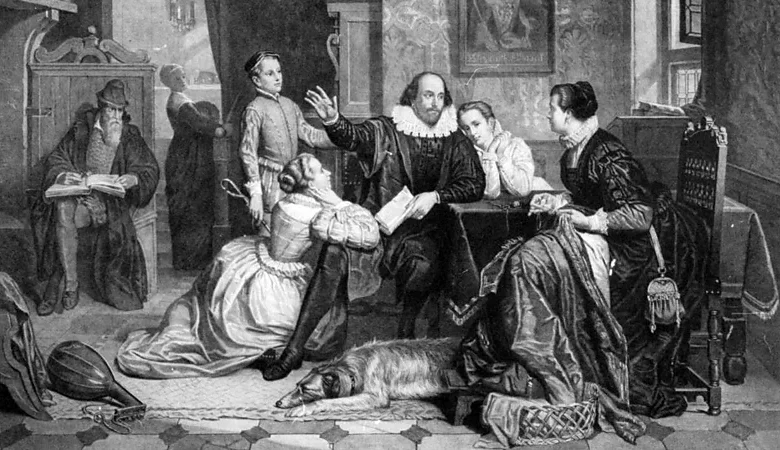
Oscar-tipped new film Hamnet imagines the home life of William and Agnes Shakespeare – and the “soul-crushing” loss of their child. It’s a powerful story that fills in many blanks.
In Hamnet – Maggie O’Farrell’s eloquent 2020 novel and the deeply moving new film based on it – Shakespeare’s wife, Agnes, is a herbalist who has a knowledge of medical potions and an almost supernatural ability to sense the future. But she cannot save her young son from the plague, a death that leads the boy’s father to write one of the greatest plays in all of literature, Hamlet. And almost none of that is true in any verifiable way. On the page and on screen, Hamnet is a work of inspired imagination, a rich exploration of grief spun out of the barest of facts. You can’t say that O’Farrell, who also wrote the film’s screenplay with its director, Chloé Zhao, distorted the real story, because there is no known story, despite centuries of historians digging around in Shakespeare’s past.
The sparse facts about Shakespeare’s family are far outnumbered by the questions they raise. Records show that in 1582 William Shakespeare, then 18, married 26-year-old Anne Hathaway, who was pregnant with their first child, Susanna. Three years later, their twins were born, called Judith and Hamnet, a name that at the time was interchangeable with Hamlet. In 1596, when he was just 11, Hamnet died. He was buried on 11 August and it is almost certain that Shakespeare, who was traveling with his theatre troupe, could not have made it back to Stratford in time for the funeral. About four years later, he wrote Hamlet. Make of that what you will.
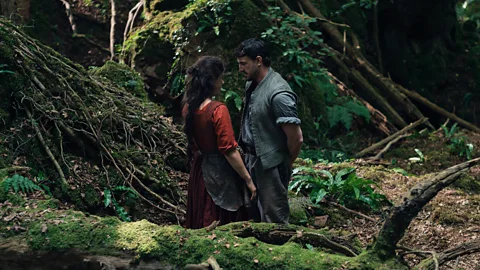
No one knows whether Shakespeare felt forced to marry the pregnant Anne or if they were wildly in love. No one knows how Hamnet died, but the plague was then rampant and the most likely cause of his death. Most crucially for the book and film, no one knows much about Anne herself, including whether she could read and write. The fiction gives her a strong-willed personality (as depicted by Jessie Buckley on screen in her Oscar-tipped performance) and a passionate romance with Shakespeare (Paul Mescal). Hamnet is really about Agnes.
Changing the narrative
In the author’s note at the end of her novel, O’Farrell acknowledges how little is actually known about Hamnet and his parents. But she informs her story with careful research into the late 16th Century, and places it within that historical context. While researching the period, she said, “I got slightly sidetracked by how badly history and scholarship has treated his [Shakespeare’s] wife, the woman we’ve been taught to call Anne Hathaway. We’ve only ever really been given one narrative about her, and most biographers have just run with it, which is that she was an illiterate peasant who trapped him into marriage, that he hated her, that he ran away to London to get away from her.”
What I did was go back to the plays, seeing if I could find her, because I’ve always felt that I can see Hamnet in Hamlet. I thought she must be there – Maggie O’Farrell
Even her name is uncertain. Her father, a successful farmer, left her a dowry in his will, calling her Agnes. O’Farrell chose to give her character that name, figuring “[if] anyone would know her name it would be her father.” She says, “It just felt really emblematic to me that on top of everything else, we haven’t even got her name right.”
O’Farrell has a solid point about the vilification of Shakespeare’s wife. Jo Eldridge Carney, author of the study Women Talk Back to Shakespeare: Contemporary Adaptations and Appropriations, and professor of English at The College of New Jersey, said: “This [O’Farrell’s] portrayal is a deliberate repudiation of centuries of ill-informed assumptions about Anne as either a patient but boring saint tending the home fires in Stratford or the promiscuous hag who lured Shakespeare into a miserable marriage.”
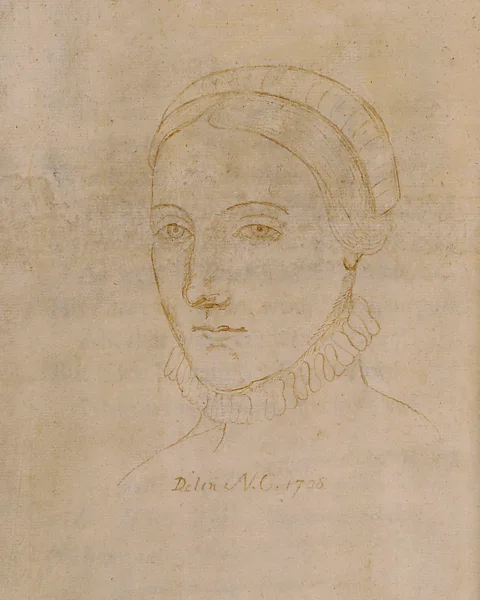
Figuring out her real name is more complicated. David Scott Kastan, a prominent Shakespeare scholar and professor emeritus of English at Yale University said: “She is Anne in almost all records, Agnes only in one: her father’s will.” Nothing else is certain. It is possible, he says, “that she was born Agnes but called Anne”. He adds, “I like the way the novel uses the possibility to give her her own identity, apart from the marriage we know too little about and always view through the lens of Shakespeare.”
A modern woman
To create Agnes’s distinct character, O’Farrell reverse-engineered it from Shakespeare’s plays. “What I did was go back to the plays and read around them in a different way, seeing if I could find her, because I’ve always felt that I can see Hamnet in Hamlet. But I was wondering – I thought she must be there.”
One inspiration for Agnes’s intuitiveness comes from those re-readings. “There’s an awful lot of second sight in the plays. Think of Julius Caesar’s oracle, for example,” O’Farrell says. The fictional Agnes’s knowledge of herbs and potions has its counterpart in the plays too, notably in Ophelia’s monologue in Hamlet when she seems to be going mad and hands flowers and plants to other characters, with lines including “Rosemary, that’s for remembrance”.
“I read that every household had, at that time, a medicine garden,” says O’Farrell. “And it would’ve been the responsibility of the woman of the house, the matriarch, to know how to make medicines and to treat ailments. It would not have been something that men knew about.” For this speech, O’Farrell says, she could imagine Shakespeare relying on his wife’s expertise.
The connections between lived event and Shakespeare’s art are just speculation, however intriguing – David Scott Kastan
Seeing her as a truly equal partner gives us, perhaps with a bit of wish fulfillment, an Anne / Agnes for the 21st Century. Buckley’s Agnes is the kind of wife we might want Shakespeare to have – that is, someone extraordinary in her own way. She is so unusual that she is rumoured to be, as Shakespeare’s mother warns him in the film, “the child of a forest witch”. She is smart, fiercely opinionated and understanding enough to see that her husband has to pursue his artistic calling in London. She is a woman whom a genius might have fallen for, and we understand why Mescal’s Shakespeare is drawn to her from the start.
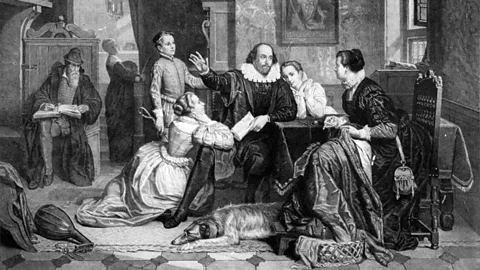
This conception of Anne / Agnes is not necessarily just wishful thinking though. Carney says: “While it may be tempting to see O’Farrell’s Anne as her attempt to simply turn her into an early modern feminist – a figure more in keeping with our own sensibilities – this portrayal in fact aligns with what we know of the lives of many early modern women.” She adds: “We know that many women successfully ran what we would today refer to as ‘small businesses’: brewing, herbal healing, malt-making, trading, weaving, and more. The degree of literacy required for these careers has been more difficult to assess.”
We still don’t know if Shakespeare’s wife could read. The fictional Agnes can, but O’Farrell herself thinks the character’s real-life counterpart was probably illiterate. “It would’ve been thought pointless to teach the daughter of a sheep farmer to read,” she says.
The Hamlet-Hamnet connection
The marriage that the book and film imagines becomes more distant when Shakespeare leaves his family behind in Stratford-upon Avon for long stretches while he works in theatre in London, absences that are historically well-known. But when it comes to Hamnet’s death and its aftermath, there is only more speculation.
O’Farrell, in line with the Shakespeare scholar Stephen Greenblatt’s influential 2004 essay The Death of Hamnet and the Making of Hamlet, sees a direct line to the play, even beyond the echo of Hamnet’s name. In the film, when Agnes travels to London to see the play for herself – another fictional touch – we see, as she does, that the actor playing Hamlet has been given a costume and hair colour that makes him look like Hamnet. In a brilliant stroke of casting, Jacobi Jupe plays the boy Hamnet and his brother Noah Jupe is the actor playing Hamlet on stage. The visual resemblance between the two is unmistakable. In this interpretation, the play is not only a way for Shakespeare to channel his grief. By playing the role of the ghost of Hamlet’s father, he gets to say goodbye to his son on stage as he never did in life.
Kastan says about the link between Hamnet’s death and the play: “It had to have some [effect], we just don’t know what it was. It is tempting, maybe irresistibly so, to relate the son’s death to Hamlet. The death of Hamnet / Hamlet must have been felt by Shakespeare and his family as a soul-crushing loss. It might then have been at least part of the reason that within a few years of the boy’s death, Shakespeare turned to an old play (maybe by Thomas Kyd) about a son named Hamlet and a ghost calling for ‘revenge’ to write his own Hamlet, in which he would appear on stage. It has long been speculated that Shakespeare played the ghost in his play, reversing the roles of living and dead.” But there are many other influences on the play, both literary and cultural. “The connections between lived event and Shakespeare’s art are just speculation, however intriguing,” Kastan says.
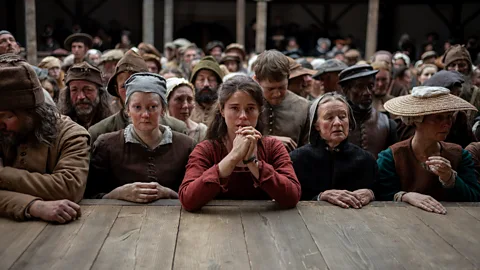
The fact is that there is no surviving evidence of what Shakespeare thought or felt about his wife and family at all, not even a scrap of a letter. But new research into a fragment of a letter from an unknown sender may or may not shed light on the Shakespeares’ marriage. Matthew Steggle, professor of English at the University of Bristol, suggests that a letter addressed to Mrs Shakespeare in London was meant for Anne. That would have her living there with her husband between 1600 and 1610 and would prove her literacy. Steggle himself has said his research merely “opens the door” to this prospect, that “it’s a possibility that seems difficult to avoid rather than a certainty”.
More than any scholarly research, though, it’s this high-profile film that is likely to alter the public perception of Shakespeare’s wife, solidifying her as Agnes. That would be “very nice if it’s true”, O’Farrell says. But “maybe it’ll be a fleeting thing. Maybe, like this letter, something else will come to light and we’ll all have to change our minds again.” She adds the two words that define so much about the Shakespeares and their son: “Who knows?”










